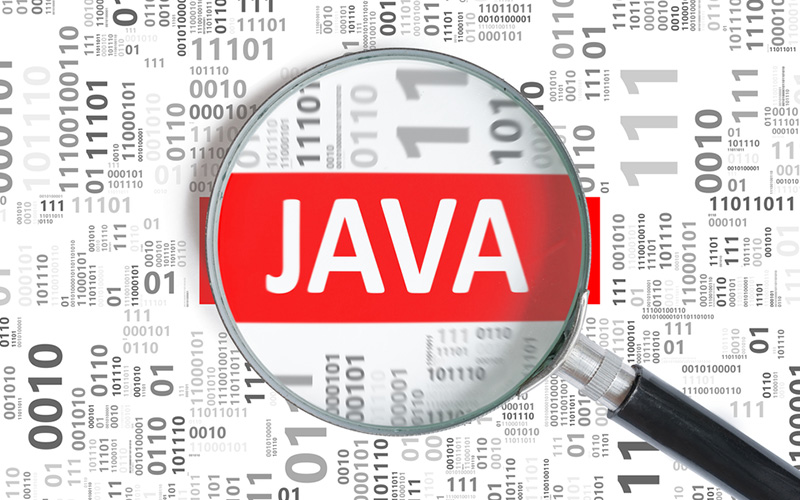Why Java Reigns Supreme in Big Data and IoT
 Sanjeet Singh
Sanjeet SinghJava stands out as a powerful and adaptable programming language in the realm of Big Data and the Internet of Things (IoT). Its enduring popularity stems from several key strengths that perfectly align with the demands of processing massive datasets and managing interconnected devices. Let’s explore the features, ecosystem, and contributions that make Java indispensable in these exciting domains.

Understanding Big Data and IoT Big Data refers to the vast and ever-growing volume of structured and unstructured data generated from various sources – sensors, social media, transactions, and more. Analysing this data requires powerful computing capabilities and efficient processing frameworks. Meanwhile, IoT encompasses a network of interconnected devices that collect and exchange data, enabling real-time monitoring, automation, or decision-making.
Java’s prominence in these domains isn’t accidental. Its inherent characteristics and extensive support through libraries, frameworks, and tools make it a perfect fit. Here’s a deeper dive into why Java dominates Big Data and IoT:-
Built to Scale and Perform
Java excels at handling large-scale data processing, a hallmark of Big Data applications. The Java Virtual Machine (JVM) plays a key role here. It optimises performance by translating Java bytecode into machine-specific instructions on the fly. This ensures Java applications run efficiently across diverse platforms without recompilation – a crucial advantage in the heterogeneous environments of Big Data.
Furthermore, Java’s multithreading capabilities enable concurrent execution, facilitating parallel processing of data. This is vital for distributed computing frameworks like Apache Hadoop and Apache Spark, which leverage Java to achieve high throughput and low-latency data processing.
A Rich Ecosystem of Tools at Your Disposal
Java boasts a vast ecosystem of libraries and frameworks specifically tailored for Big Data and IoT applications. For instance, Apache Hadoop, a cornerstone of Big Data processing, is primarily written in Java. It facilitates distributed storage and processing of large datasets across clusters of computers, efficiently managing complex data workflows thanks to Java’s robustness.
Apache Spark, another prominent Big Data framework, offers in-memory data processing and seamless integration with Java. Spark’s Java APIs simplify the development of scalable data analysis applications, enabling developers to leverage advanced analytics and machine learning models on Big Data. In the IoT space, Java’s flexibility and extensive libraries empower developers to create applications that interact with diverse devices and sensors. Libraries like Eclipse IoT, MQTT, and Java ME Embedded support the development of IoT solutions for various industries, from smart homes to industrial automation.
Platform Independence: Write Once, Run Anywhere
Java’s “write once, run anywhere” motto remains a cornerstone of its appeal in Big Data and IoT. Applications developed in Java can run on any device or platform with a JVM, enhancing portability and removing deployment complexities. This cross-platform compatibility is critical for IoT deployments, where interoperability between different devices and operating systems is essential.
Moreover, Java’s compatibility with cloud computing platforms like Amazon Web Services (AWS) and Microsoft Azure further accelerates the adoption of Java-based solutions in Big Data analytics and IoT deployments. Cloud providers offer managed services and integrations that leverage Java’s capabilities to streamline data processing, storage, and analysis at scale.
Security You Can Trust
In Big Data and IoT environments, data integrity and security are paramount. Here, Java’s built-in security features provide a robust foundation. The Java Security Manager enforces fine-grained access controls, mitigating risks associated with unauthorized access and malicious code execution. Additionally, Java’s strong typing system and exception handling mechanisms enhance application reliability, minimizing runtime errors that could disrupt data processing pipelines or IoT operations.
Java’s continuous evolution and community-driven updates are crucial in promptly addressing security vulnerabilities, maintaining its long-standing reputation for reliability in mission-critical applications. This reliability is indispensable in sectors like healthcare, finance, and government, where strict adherence to stringent data protection regulations is not only encouraged but mandated. The robust security measures of Java ensure that organizations can confidently deploy and maintain Java-based solutions, safeguarding sensitive data and preserving operational integrity in highly regulated environments.
Embracing Modern Development Practices
Java’s adaptability to modern development practices, such as microservices architecture and containerization, reinforces its relevance in contemporary Big Data and IoT landscapes. Microservices enable the decomposition of complex applications into smaller, manageable services that can be independently developed, deployed, and scaled. Java frameworks like Spring Boot facilitate the creation of microservices-based applications, leveraging Java’s enterprise capabilities for seamless integration with Big Data platforms and IoT ecosystems.
Containerization technologies like Docker and Kubernetes further simplify the deployment of Java applications across distributed environments, promoting agility and scalability in Big Data processing and IoT deployments. Java’s compatibility with container orchestration frameworks ensures efficient resource utilisation and high availability, essential for handling the dynamic workloads characteristic of Big Data analytics and IoT operations.
Future Outlook
Looking forward, Java’s evolution continues to align with emerging trends in Big Data and IoT, such as edge computing and AI-driven analytics. Java’s versatility and strong community support empower developers to innovate confidently, leveraging its robust ecosystem to meet evolving demands in data management, device connectivity, and real-time analytics.
Conclusion
Java’s enduring dominance in Big Data and IoT stems from its scalability, performance, Java’s enduring dominance in Big Data and IoT stems from its scalability, performance, robust ecosystem, cross-platform compatibility, security features, and support for modern development practices. As organizations continue leveraging the power of data and interconnected devices, Java remains a dependable choice for creating resilient, scalable, and secure applications that foster innovation and enable data-driven decision-making.
Mastering Java and its associated frameworks through targeted training, such as a best Java course in Delhi, Noida, Pune, Mohali, and other parts of India, along with hands-on experience, empowers developers to unlock the full potential of Big Data and IoT. This proficiency allows them to make substantial contributions to transformative solutions across diverse industries. As technology advances, Java’s adaptability and robust community support guarantee its ongoing relevance in shaping the future of data-centric applications and IoT ecosystems.
Subscribe to my newsletter
Read articles from Sanjeet Singh directly inside your inbox. Subscribe to the newsletter, and don't miss out.
Written by

Sanjeet Singh
Sanjeet Singh
I work as a professional in Digital Marketing and specialize in both technical and non-technical writing. My enthusiasm for continuous learning has driven me to explore diverse areas such as lifestyle, education, and technology. That's what led me to discover Uncodemy, a platform offering a wide array of IT courses, including Python, Java, and data analytics. Uncodemy also stands out for providing the java training course in Mohali locations across India, including Faridabad and Jabalpur. It's a great place to enhance one's skills and knowledge in the ever-evolving world of technology.